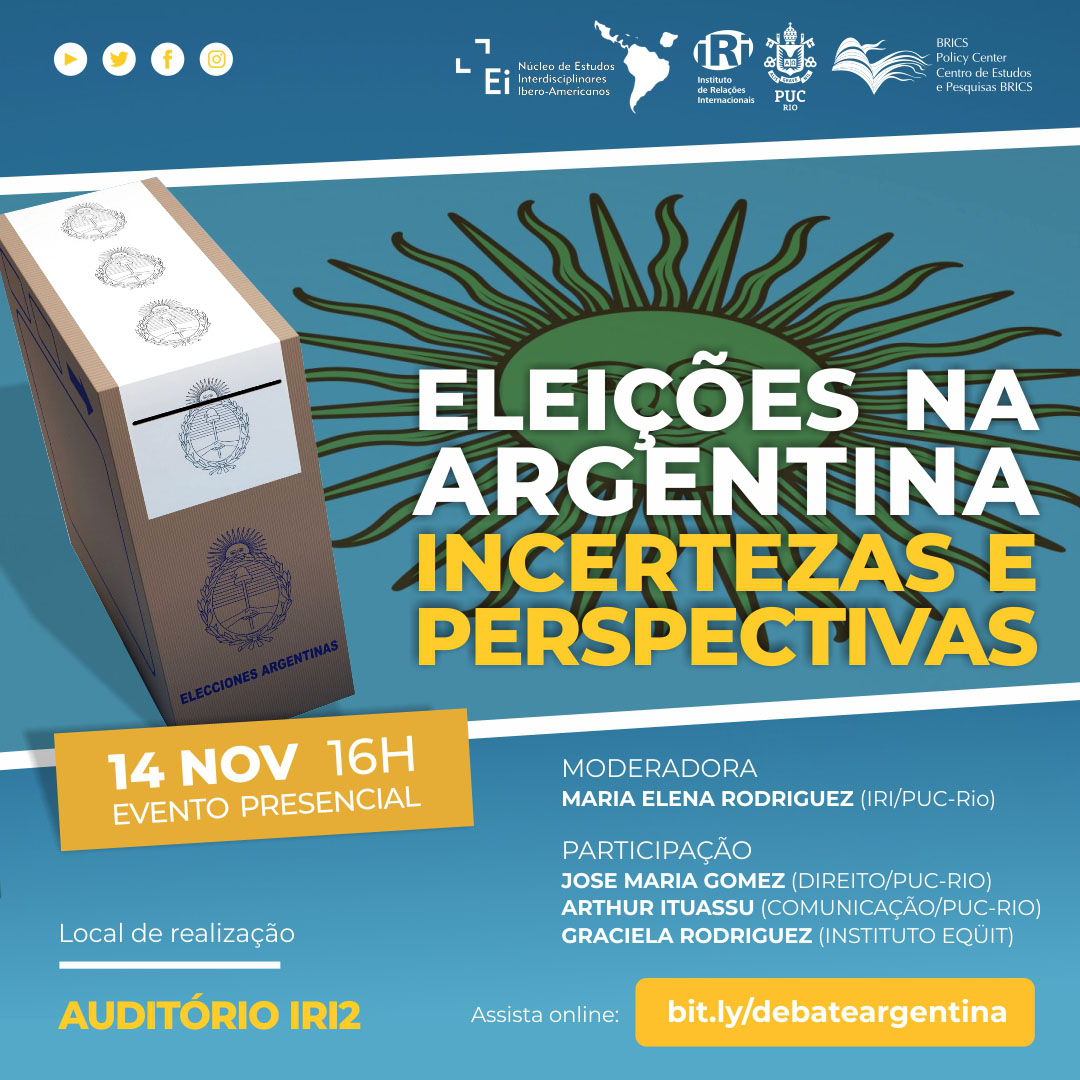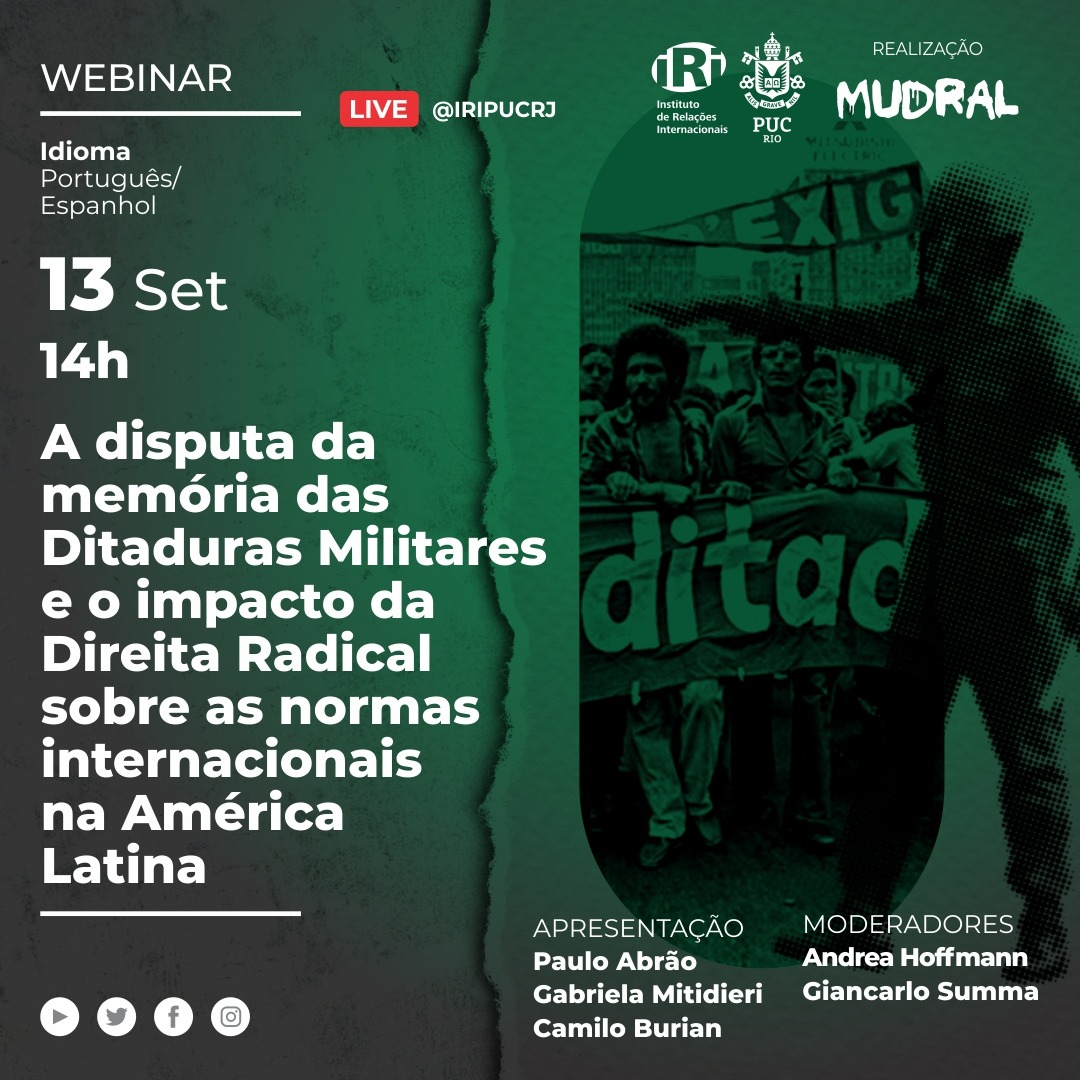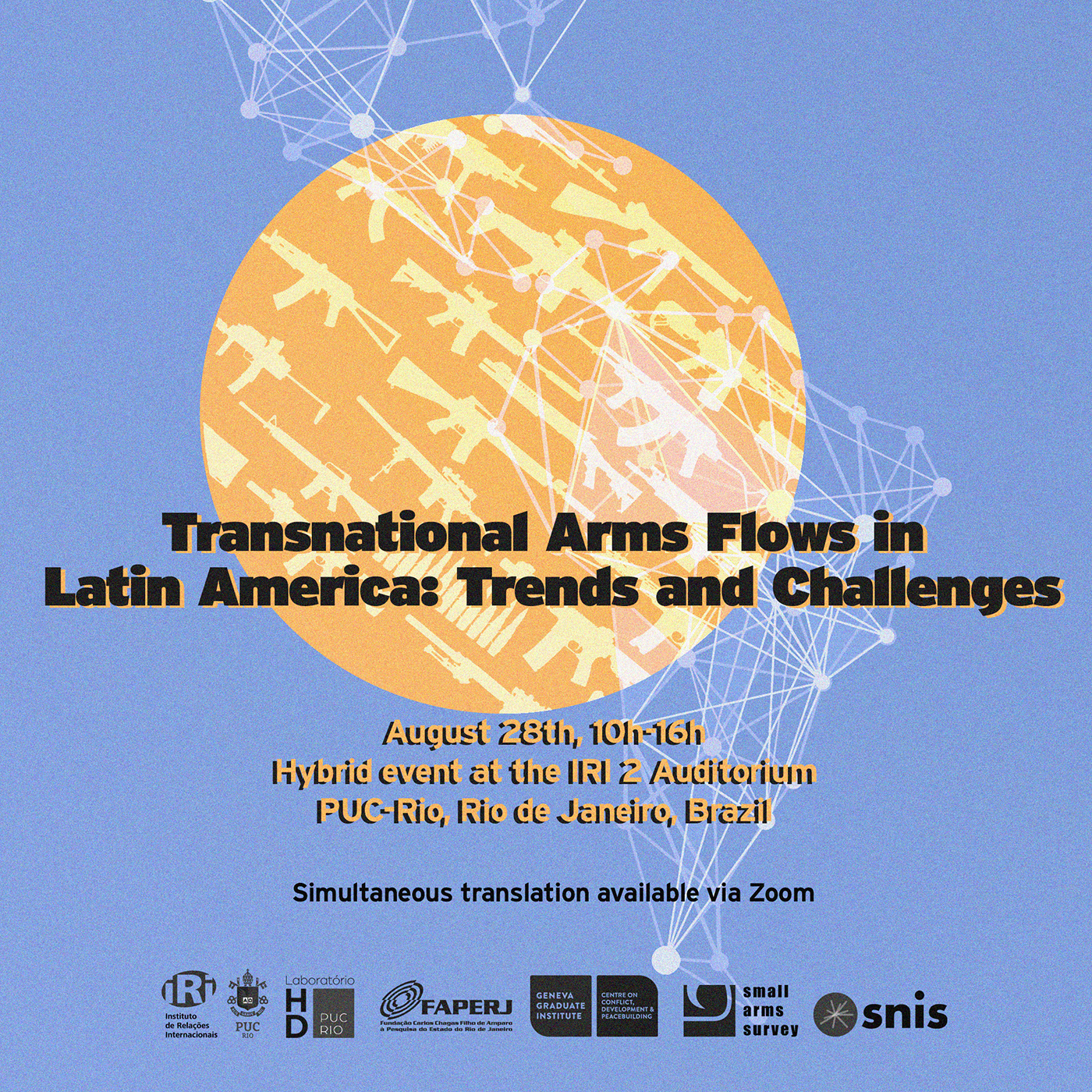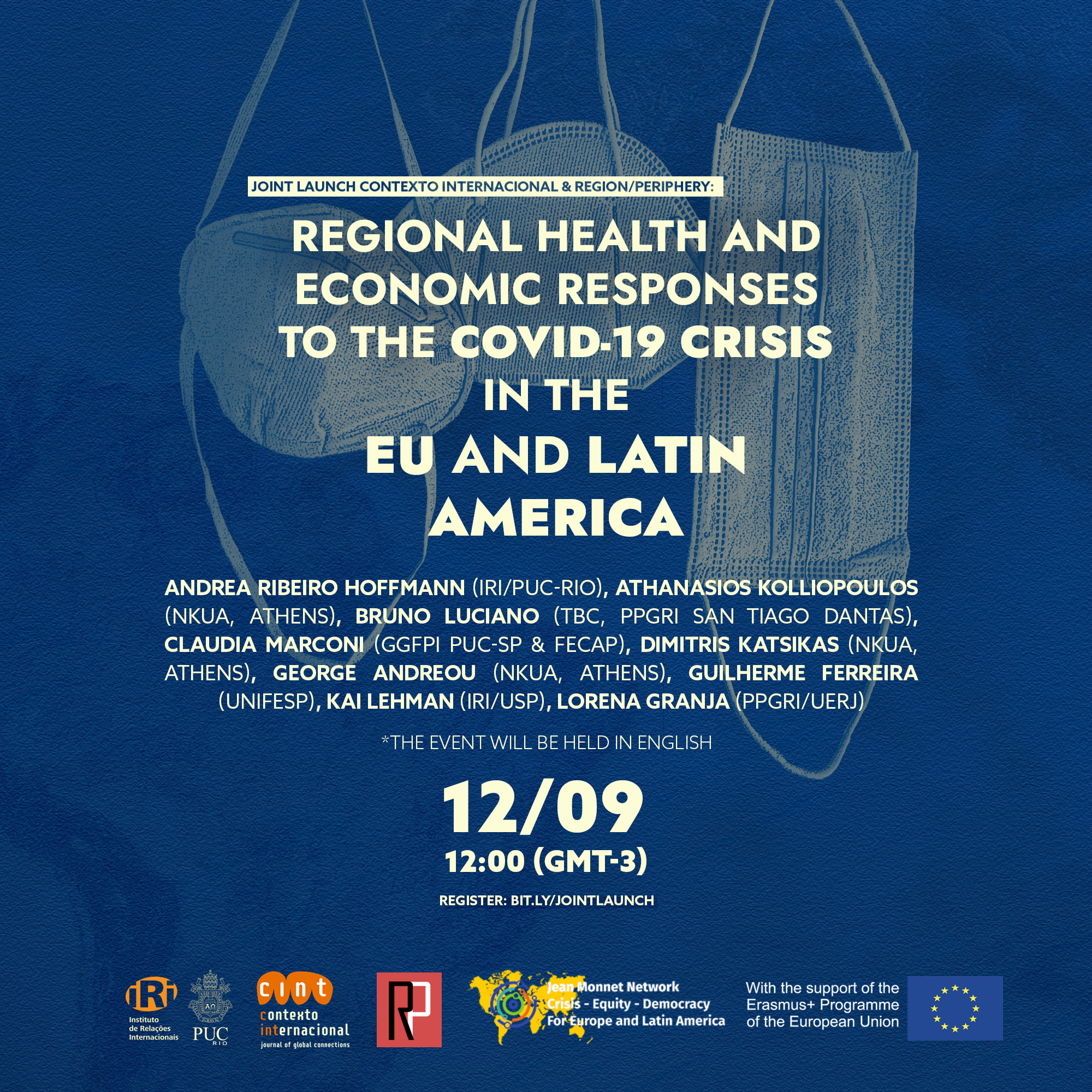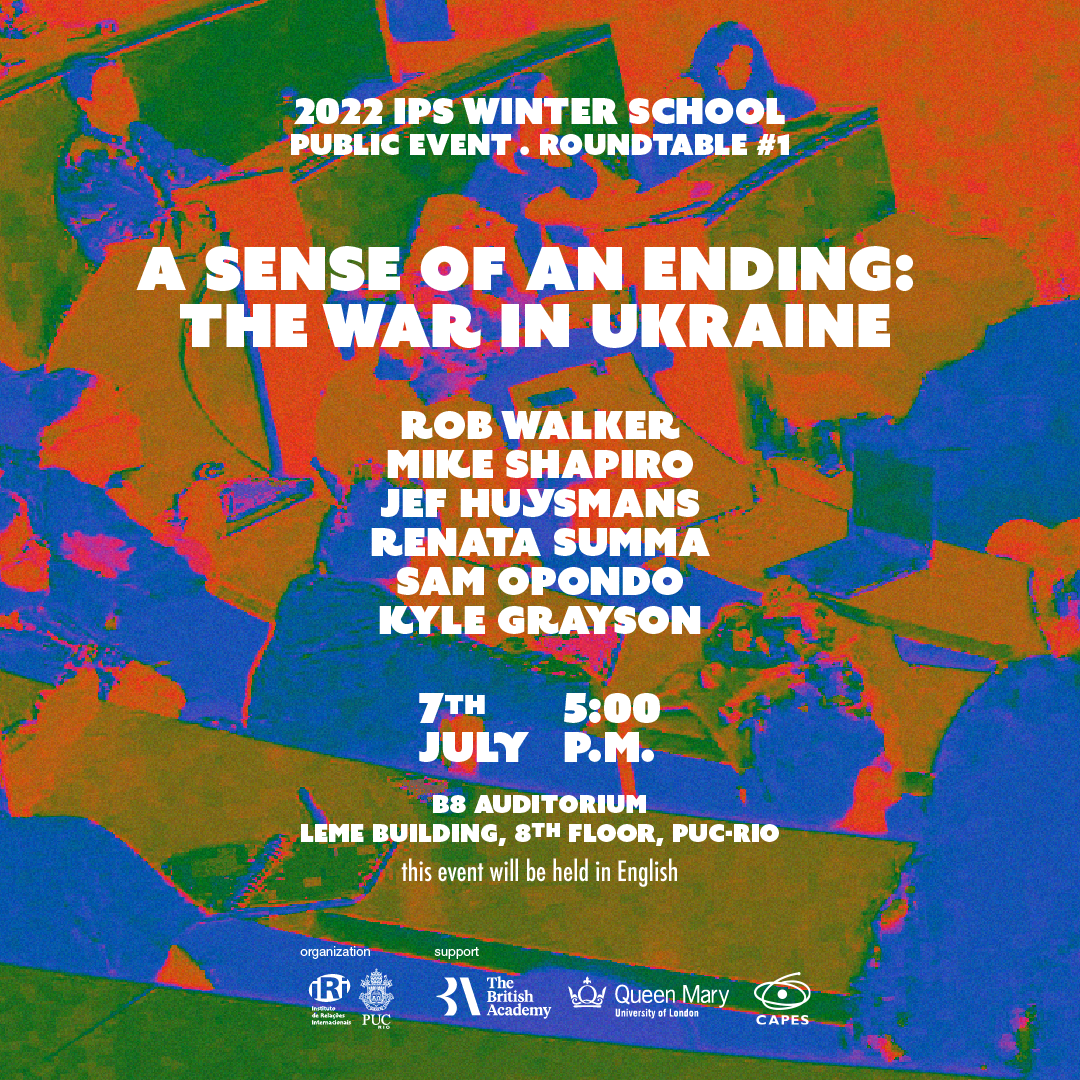The Institute of International Relations and the Jean Monnet Network ‘Crisis-Equity-Democracy for Europe and Latin America’, based at PUC-Rio, invite all to the launch of the special issue “Regional Health and Economic Responses to the COVID Crisis in the EU and Latin America” to be held virtually on the 12th of September.
The event will feature contributions by Andrea Ribeiro Hoffmann (IRI/PUC-Rio), Athanasios Kolliopoulos (NKUA, Athens), Bruno Luciano (TBC, PPGRI San Tiago Dantas), Claudia Marconi (GGFPI PUC-SP & FECAP), Dimitris Katsikas (NKUA, ATHENS), George Andreou (NKUA, ATHENS), Guilherme Ferreira (UNIFESP), Kai Lehman (IRI/USP), and Lorena Granja (PPGRI/UERJ).
The event will be held in English.
In May 2021, the scientific journals Revista Contexto Internacional, published by the Institute of International Relations (IRI) at the Pontifical Catholic University of Rio de Janeiro (PUC-Rio), Brazil, and Region/Periphery published by the Research Centre for Economic Policy, Governance and Development (EKOPDA) at the Department of Political Science and Public Administration at the National and Kapodistrian University of Athens (NKUA), Greece, issued a joint call for the submission of original research articles on the theme of: “Regional Health and Economic Responses to the COVID Crisis in the EU and Latin America”. The purpose of the call was to attract submissions that investigate the handling of the COVID-19 crisis at a regional level focusing on the EU and Latin America.
The issues cover a wide array of topics related to the policy and institutional reactions to the pandemic in the EU and in Latin America. In the 21st century, crises of different kinds occur with increasing frequency, affecting not only individual countries, but also entire regions and the world as a whole. In this context, these special issues contribute to a growing literature on the impact of crises on regional cooperation and integration. Their concurrent publication in a comparative format, adds a new and -we believe- valuable perspective to the ongoing analysis.
The call was an initiative of the EU Jean Monnet Network Project “Crisis Management-Equity-Democracy for Europe and Latin America”, in which IRI/PUC-Rio and EKOPDA/NKUA are partners. The project promotes the comparative study of crises and crises management as well as its socio-economic and democratic implications in Europe and Latin America departing from the premise that these regions can both learn from their respective experiences on crisis response and the distributive and democratic implications at national and regional levels, as well as from the role of regional hegemons, especially in times of political polarization and increasing nationalism. The project allows the exchange of information and experiences between Europe and Latin America, but also the opening of a bi-regional dialogue on the social and macroeconomic policies and crisis management, providing additional content to the Strategic Alliance the Summits EU-CELAC are supposed to build.
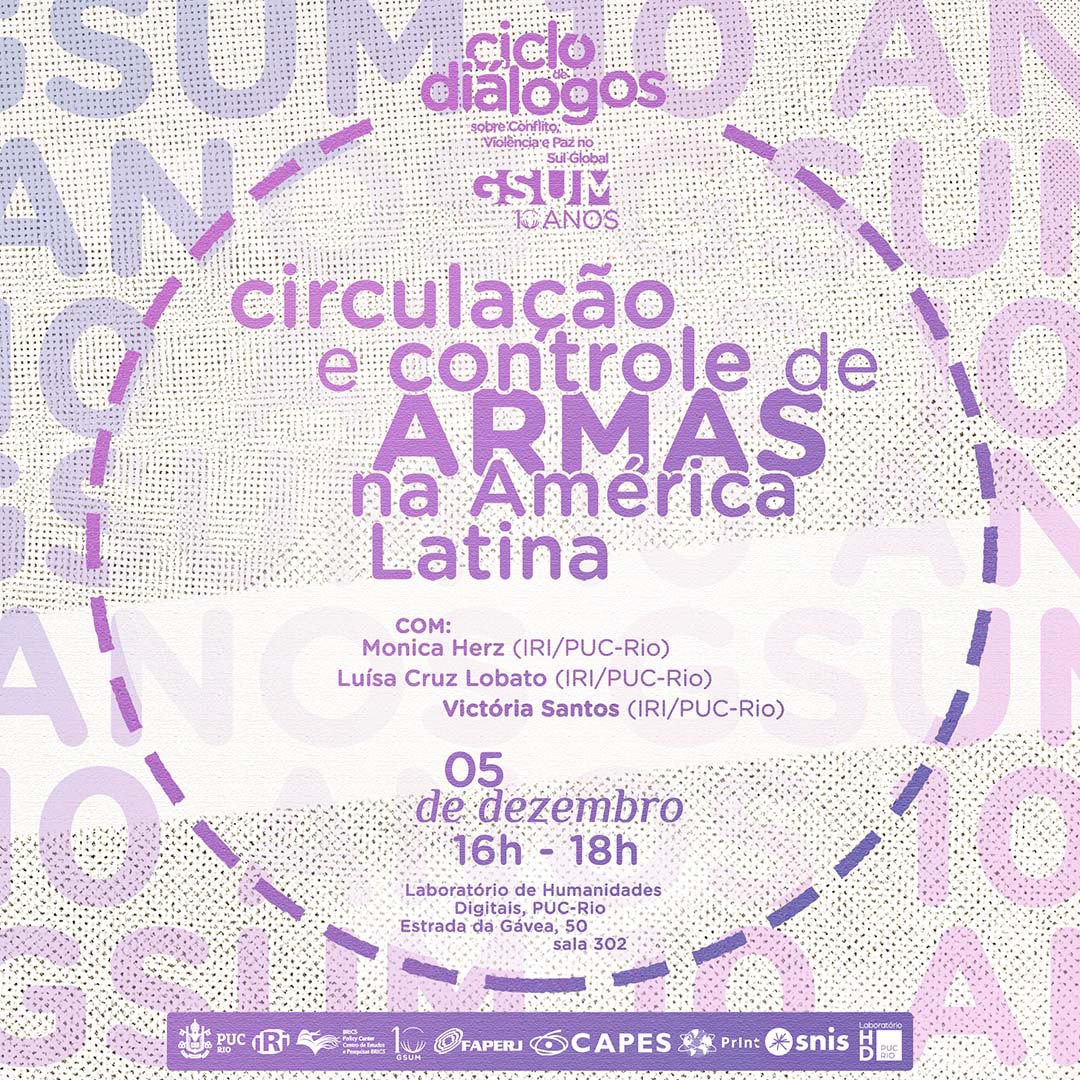
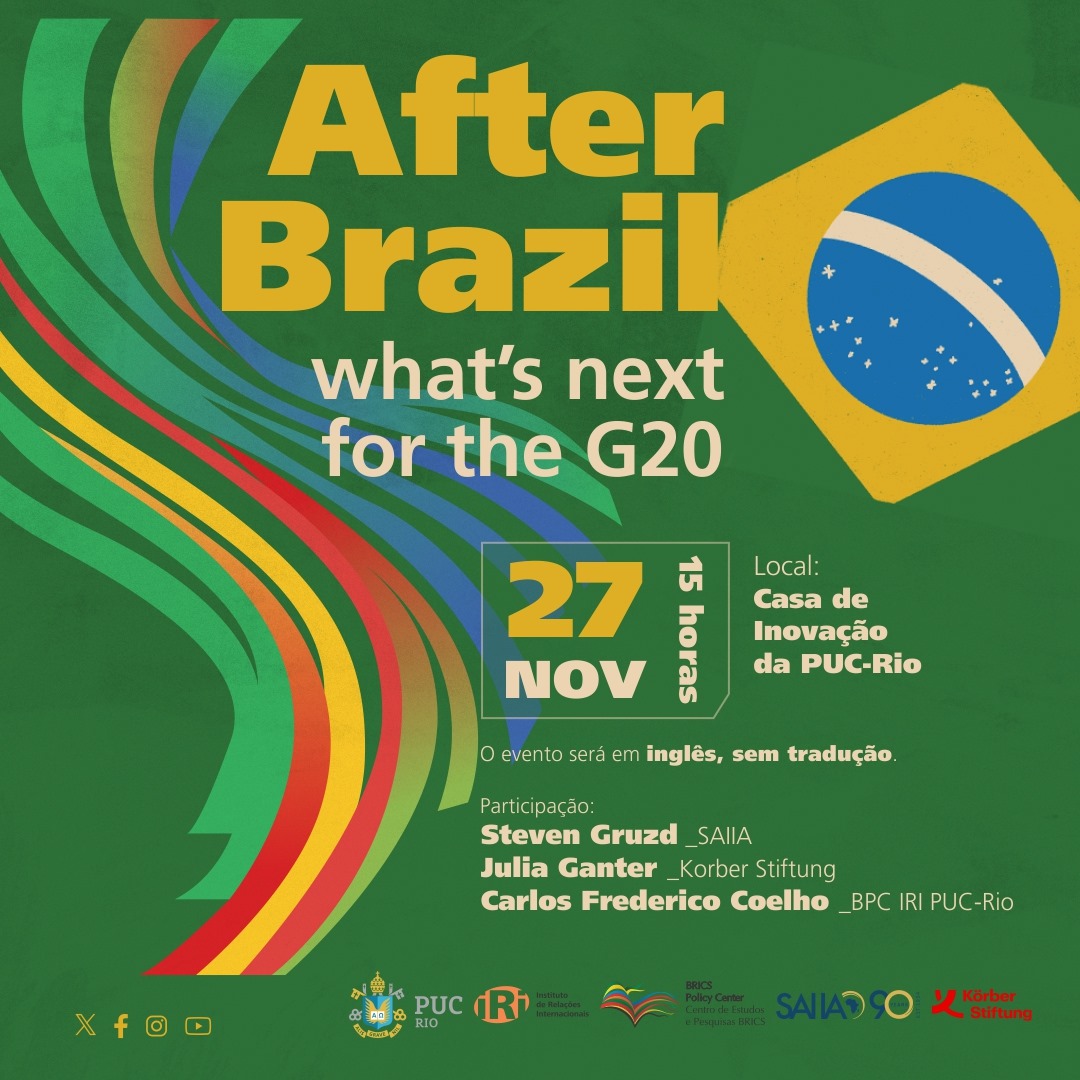
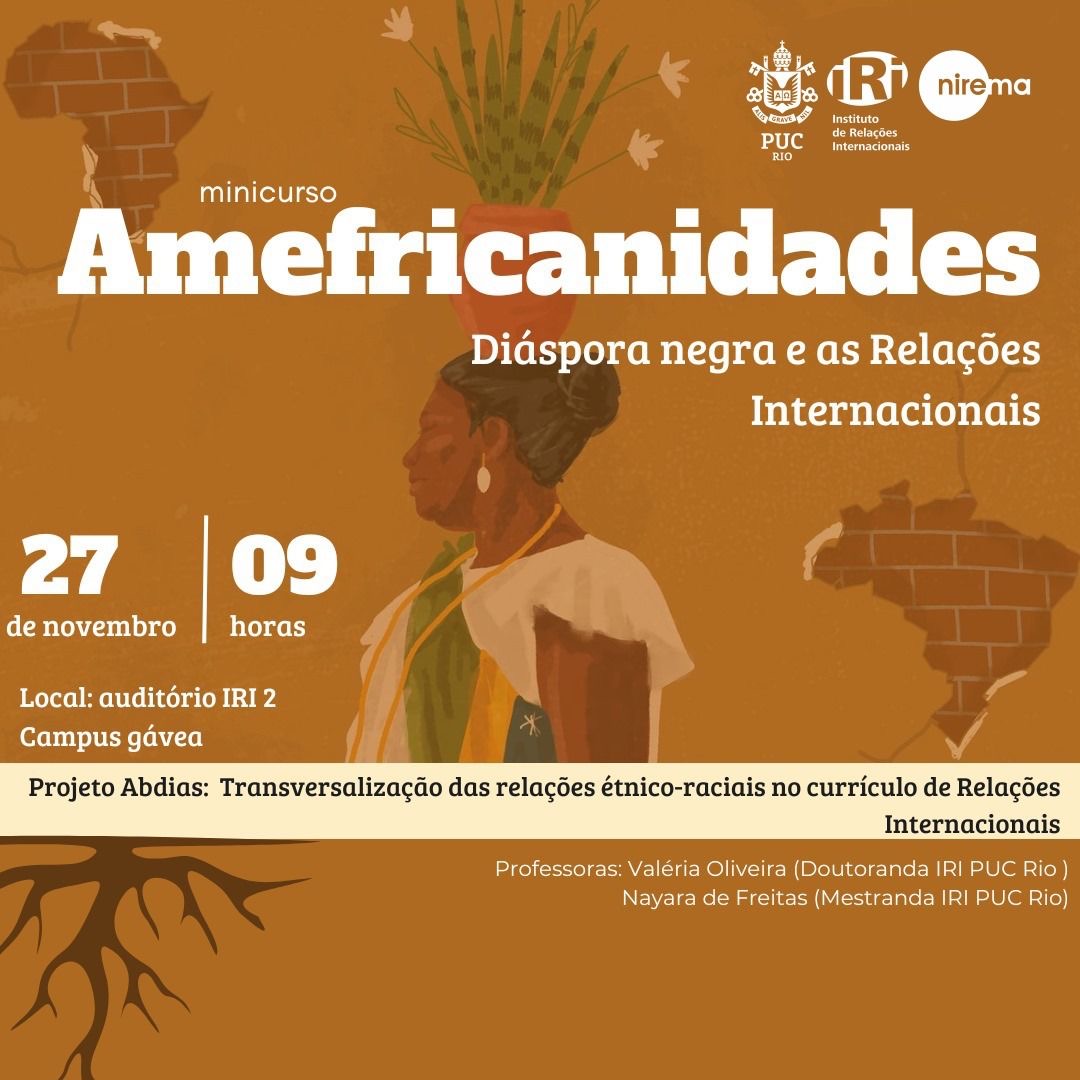
![[SAVE THE DATE] Seminários da Graduação de 2024.2: “Repensando a migração internacional e o refúgio no e a partir do Rio de Janeiro”](https://www.iri.puc-rio.br/wp-content/uploads/2024/10/2b73fd09-0cd2-45b3-94d2-36e8526ac84f.jpeg)
